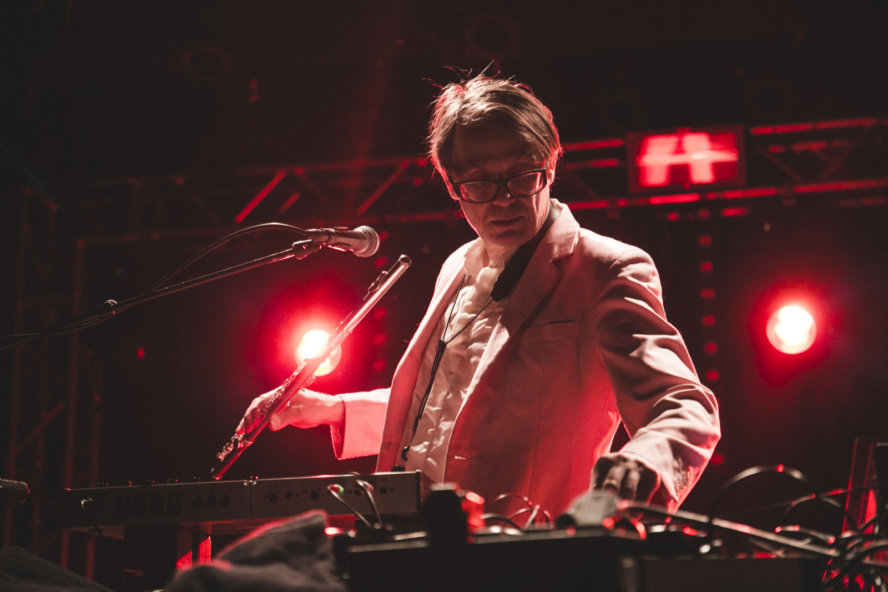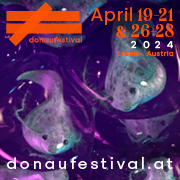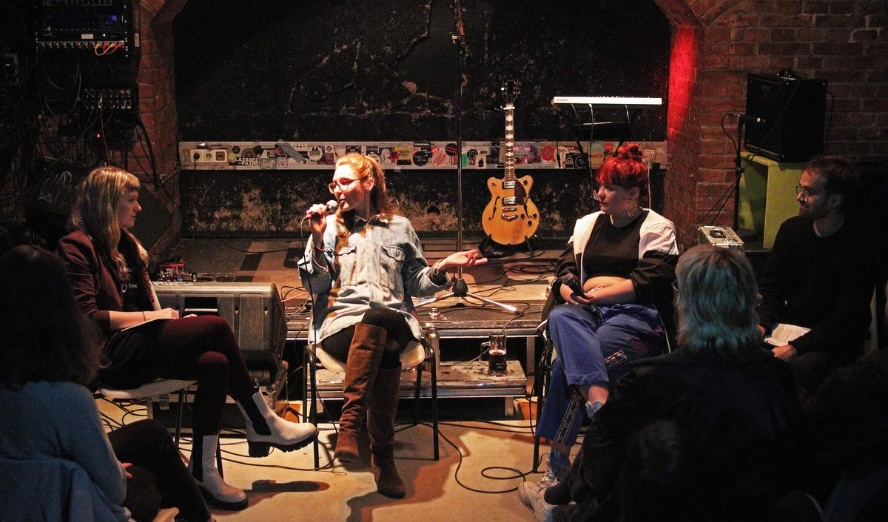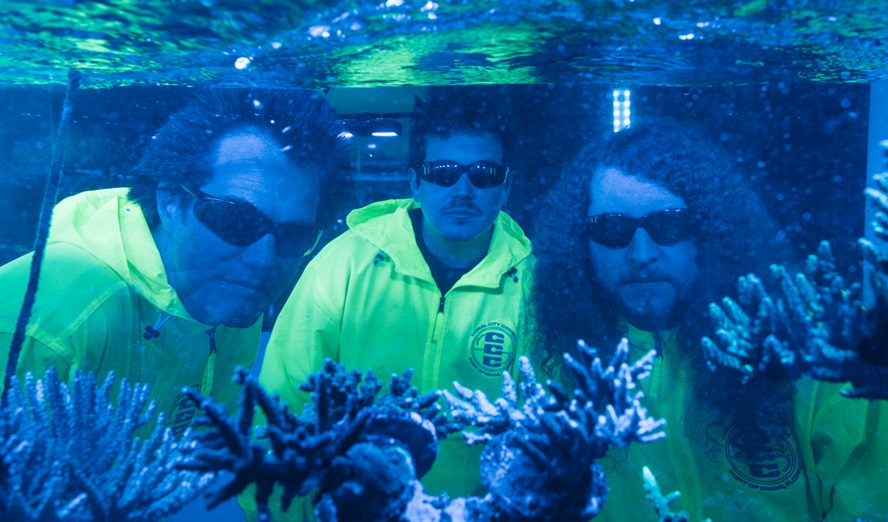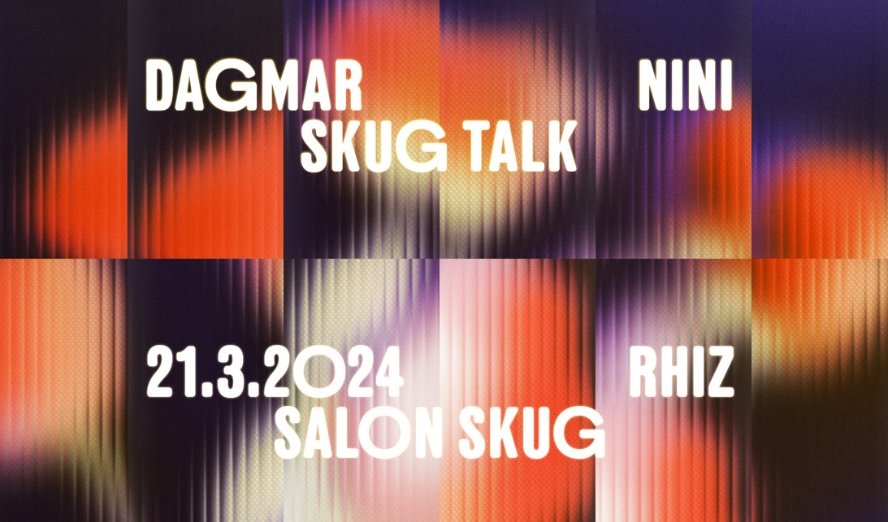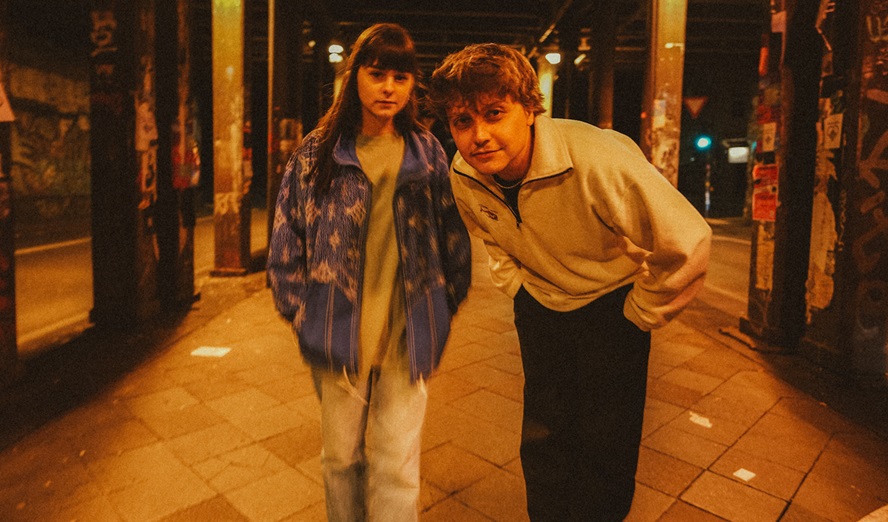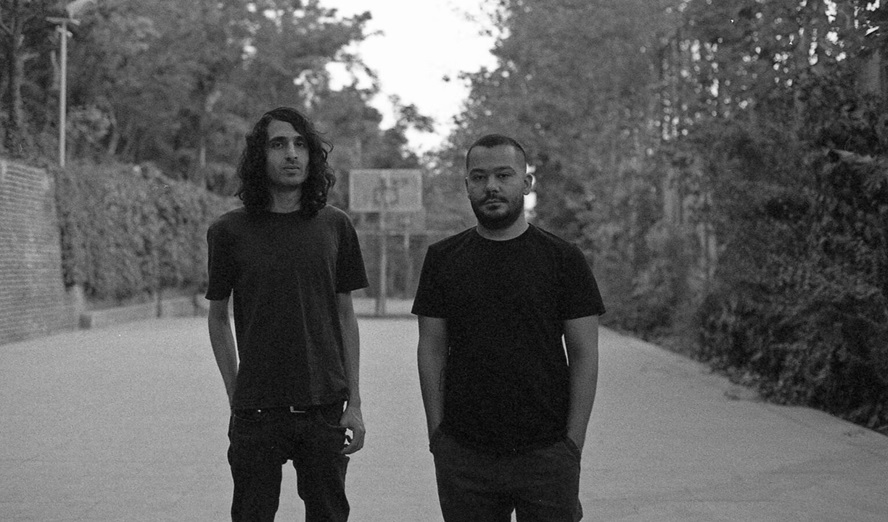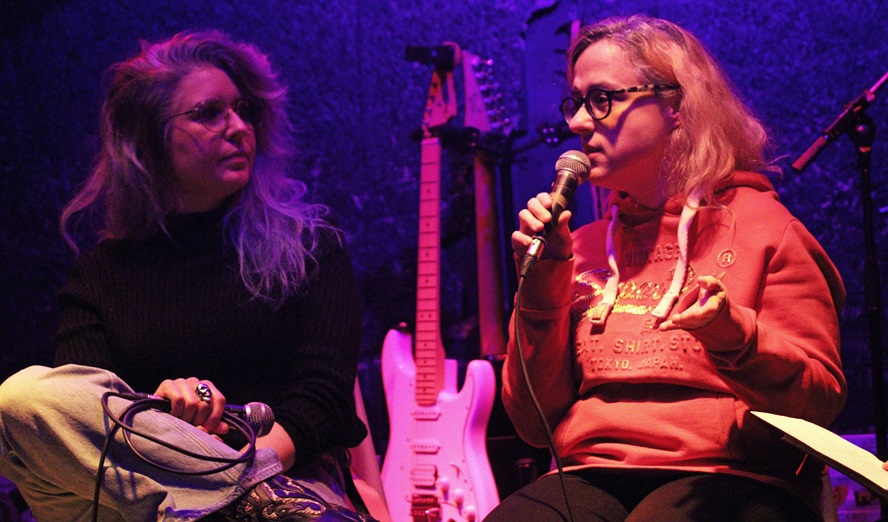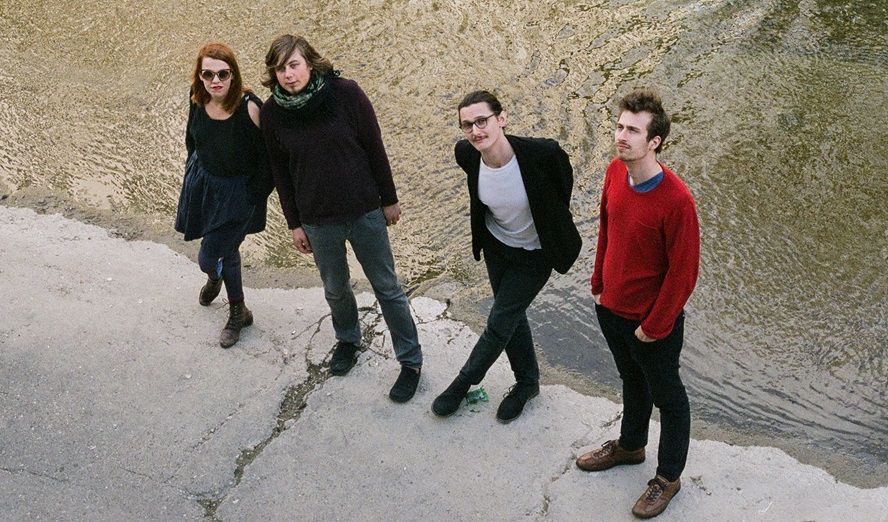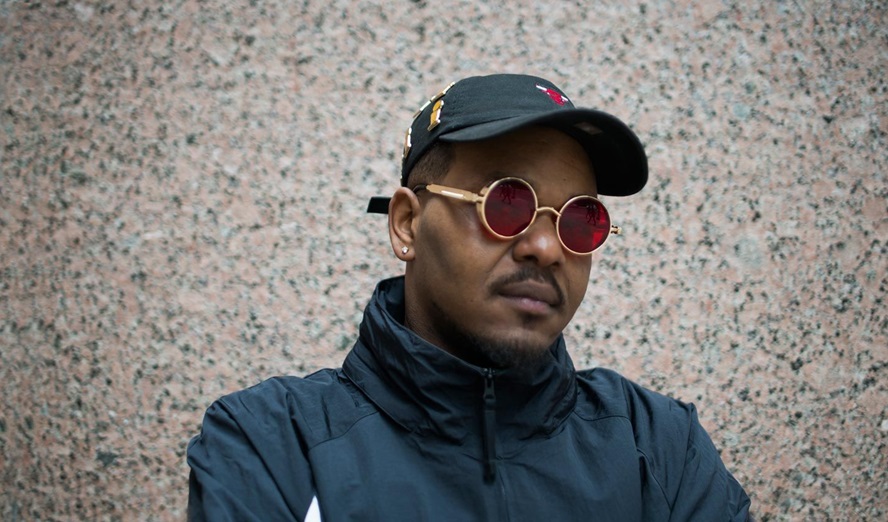Jimi Tenor is a flamboyant personality – both music-wise and as an artistic character himself. For almost three decades now, the Finnish musician has released a vast amount of material ranging from abstract industrial music (in the late 1980’s) to more electronica-driven techno (during the mid-1990’s) until aiming at a more bossa nova influenced afrobeat direction. If you take a closer look at his countless collaborations in the field of jazz fusion and afrobeat you’ll end up finding an extensive back catalogue which is well worth listening through on a mild and balmy Spring day. Two hours before his charming live-set at this year’s Elevate Festival, I sat down with Jimi for a brief talk about his past career as a reluctant participant in a once ascending techno culture and his recent thoughts about music culture in general.
skug: You’ve talked a lot about your musical career in the past and I don’t want to repeat all that. I’d rather focus on a very specific event you’ve once mentioned, namely a trip to Cuba in the early 1980’s where you were introduced to the music of Chucho Valdés and his band Irakere. Can you tell us a bit about how this was important for your subsequent life?
Jimi Tenor: Well, I didn’t see Irakere playing there live, but I bought one of their albums at the airport. This stuff captivated me a lot. I also bought one recording of Arturo Sandoval who at that time happened to be the lead trumpet player of Irakere, but it was absolutely terrible. Still, I had never heard this kind of music before, even though I was into Latin music. It’s just that it never reached this point of fusion and groove which you can hear in bands like Irakere.
And one can recognize this lasting impression throughout your musical career. Even in your latest record (»Saxentric«) you can find a strong bossa nova influence …
Well, yeah. All this soft bossa nova stuff most likely comes from when I was getting into exotic music, you know, all this cheesy stuff from America, but they had big orchestrations and a lot of times, there was this little Latin rhythm – kind of a pastiche. Still, I’ve always liked this kind of music.
You’re a musician who never really cared about any musical standards. In fact, you once said: »I’d rather fail than not to try something a bit challenging«. How can we understand that today?
If you don’t take risks, you’ll be safe and everything will work out in a very restricted way. Of course, sometimes an album has failed because we tried something and it turned out as complete rubbish. Well, I think that’s how things go, but I do what I ever wanted to so I don’t really care much about it anymore.
And you’re in the position to do that now.
Yeah, but for the very same reason I got into this. There have been times when I suffered financially. In fact, it is kind of foolish, but luckily I survived (laughs).

You started out with this industrial band in the late 1980’s, moved on to electronics in the 1990’s, which turned out to be quite successful, but you actually decided to cease it and go back to your analogue roots. Does it take a lot of artistic selflessness to do that?
First of all, when this »Take Me Baby« thing happened in 1994, people started to ask me to play in all kinds of mainstream club events which I honestly never really liked much. It was all about playing this one song only – in playback even – and I felt like: I don’t want to do this at all. Of course, I could have made some really good money, but I refused to go with the business of the scene back then. Some 20 years later, at times when I am totally broke, I am like: Shit, I just should have stuck to doing electronic records forever.
Are you tired of being reduced to this one particular record?
Not so much, really, because I managed to survive off it and I could finance many of the records I’ve done in the past. Actually, it doesn’t bother me at all, I might even play it today. If I do electronic gigs, I still play it because it sounds good. We even did an afrobeat version of it once.
When did you reach the point to quit the ascending techno movement back then?
Right at the beginning (laughs). I always used to play in these chill out rooms anyways, so I’d never touched these big dancefloors. It just wasn’t interesting to me. Since I am more a live act guy, I never understood this attitude of just pressing buttons. For me, to be an artist always meant to be an experimentalist. In the end, it’s just about having fun and making a show. I recently played in Berlin at Tresor. It was full of tourists and they came to see »techno«, you know? If they didn’t see »techno«, they would be disappointed. That’s just not the spirit to me. It’s cool and all, you know, but if I am playing in these so called underground clubs, I always tend to try something out. It’s supposed to be fun, isn’t it?
Do you follow the techno scene right now?
No, I don’t follow it at all!
Besides all of that, you’re also a filmmaker. A lot of people might know »Sähkö«, a film which you shot in 1995. It also marked the beginning of Sähkö Records and the Finnish scene around Tommi Grönlund and Mika Vainio. Maybe you can share some memories about this time.
It was all quite experimental at that time, you can definitely see that in the film. There is this one guy eating a microphone and whatever stuff like this, you know. Those days were fun, we figured out that as a collective we can do this. There is also a scene where you can see Pan Sonic (Mika Vainio and Ilpo Väisänen) playing in a rather mainstream club and people were really into it. They were like: Yeah this is great, this is »bup up bup up bup up« (laughs). I think that these are the best challenges. When people don’t really know your music, but they end up really liking it after the gig.
Let us talk a bit about your latest record (»Saxentric«), which was released on Herakles Records, a small label based in Helsinki …
Yes, I am also involved with this one. Concerning the record, I was making it for the last four or five years, always on and off, doing little electronic jazz demos. At some point I was listening to those demos and thought that it may be a good idea to release them as an album. It’s also quite different to the previous one which I recorded with UMO Jazz Orchestra (»Mysterium Magnum«). With a lot of microphones and people involved, this was definitely an interesting challenge.
What I also wanted to talk to you about is one thing that I know you are concerned of as well: PA systems that are getting too loud. At the same time you can see (and hear) people talking relentlessly during gigs which is kind of odd. How do you see this?
I absolutely think that PA systems are too big, yes! When people need to put in earplugs, I don’t see the point anymore. Also I prefer the sound of smaller PAs or a couple of amps which are used well onstage. There is a lot more personality in it, I think. If I put my music through one of these PA systems, some of that magic disappears when the mic comes up. Maybe it would be a good idea to lower the volumes after all.
Would you assume that if the volume is turned down a bit, people would stop talking during gigs?
Hopefully. Maybe you need a little time to get used to that again. Think about Indian instruments for example. A Sitar is an extremely quiet instrument. The same goes for Tablas as well. In order to hear that music, you have to be quite silent. In the old days, this was the only way to listen to music. You had to shut up (laughs).
So people need to start listening again?
Realistically, I think it’s too late. If you walk around, every shop has its own crazy PA and it’s really loud. I mean, I never liked it when you go out for dinner and the music at the restaurant is really loud. You are not supposed to dance at these places, right? Why would the music be so fucking loud then? If people would start to focus a little bit more on the function of music, that would be such a relief. But honestly, this idea of sitting down and quietly listening to an acoustic guitar, that’s just fantasy. It would still be great, though!
